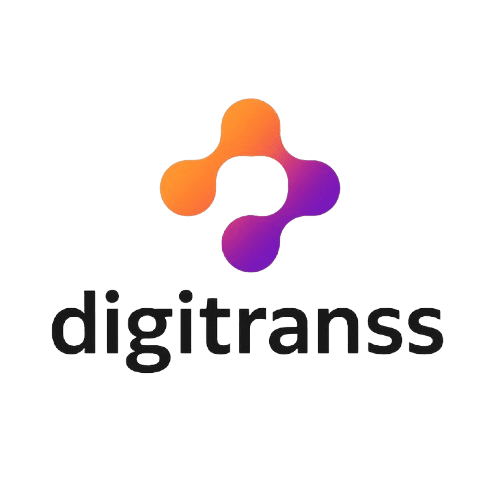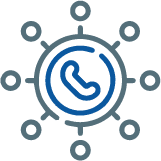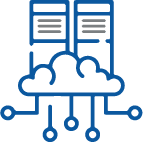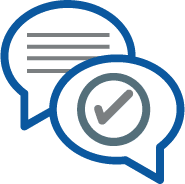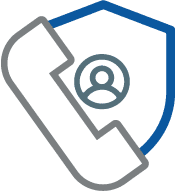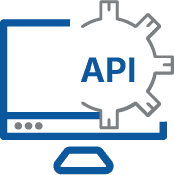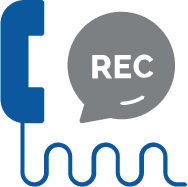The Critical Role of Security for Cloud IP PBX
In today’s digital-first environment, cloud-based telephony systems like Cloud IP PBX (Internet Protocol Private Branch Exchange) have transformed business communication by integrating voice, video, messaging, and conferencing. However, this level of interconnectivity brings heightened security risks, requiring robust security measures to protect sensitive data and communication channels.
This post will explore how security is embedded at multiple layers within Cloud IP PBX systems to protect organizations from potential threats, ensuring seamless and secure business communication.
Encryption Protocols: Protecting Data in Transit and at Rest
Encryption is critical for safeguarding both real-time communications and stored data. vNex, a Cloud IP PBX provider, implements advanced encryption protocols to ensure secure data transmission and storage.
-
- SRTP (Secure Real-time Transport Protocol) secures voice and video streams from eavesdropping by encrypting media during a call session.
- TLS (Transport Layer Security) encrypts signaling data during call setup and termination, preventing interception of call control messages.
- AES-256 (Advanced Encryption Standard) encrypts data at rest, including voice mail, ensuring that stored information is protected against unauthorized access.
These encryption layers ensure that both communication channels and data repositories are secure, and vNex regularly updates protocols to meet industry standards.
Access Controls: Restricting Unauthorized System Access
Access control is essential to prevent unauthorized access to Cloud IP PBX systems. vNex enforces several access control mechanisms:
-
- Multi-Factor Authentication (MFA): Requires users to provide multiple forms of identification, reducing the risk of unauthorized access.
- Role-Based Access Control (RBAC): Limits access to system resources based on a user’s role, ensuring that employees only have the permissions necessary for their tasks.
- Just-In-Time (JIT) Access: Provides temporary access, enhancing security by limiting exposure during specific time frames.
- Logging and Auditing: Tracks user activities, allowing for the identification of suspicious behavior and supporting proactive incident response.
These controls are part of a comprehensive strategy to minimize the risk of unauthorized access and ensure proper oversight of user activities.
Compliance Standards: Adhering to Industry Regulations
Cloud IP PBX systems must comply with various industry regulations to ensure the security and privacy of sensitive data. vNex ensures that its solutions are compliant with key frameworks such as:
-
- HIPAA (Health Insurance Portability and Accountability Act): Ensures the protection of healthcare information.
- PCI DSS (Payment Card Industry Data Security Standard): Safeguards payment data for businesses that handle credit card transactions.
- GDPR (General Data Protection Regulation): Protects the personal data of EU citizens by enforcing strict privacy and security measures.
Compliance with these frameworks gives customers confidence that their communication data is secure and managed according to regulatory requirements.
Secure Communication Channels: End-to-End Protection
vNex implements secure communication protocols like SRTP and TLS to protect both signaling data and media streams.
-
- SRTP: Encrypts RTP (Real-time Transport Protocol) streams, preventing eavesdropping during voice and video calls.
- TLS 1.2: Secures signaling messages exchanged between endpoints, safeguarding call control data from tampering or interception.
- ZRTP (Zimmermann Real-time Transport Protocol): Enables end-to-end encryption for media streams, using Diffie-Hellman key exchange for secure sessions.
These protocols create secure channels for transmitting data, ensuring that all communication remains confidential.
Data Backup: Ensuring Business Continuity
Backing up communication data is crucial for disaster recovery and business continuity. vNex follows best practices for secure data backup:
-
- Daily Backups: Ensures recent data is always available.
- Geo-Redundant Storage: Keeps backups in multiple geographic locations for greater durability.
- Encryption: All backup data is encrypted, protecting it from unauthorized access.
- Retention Policies and Recovery Testing: Data backups are stored for a minimum period and tested regularly to ensure integrity.
These measures ensure that businesses can quickly recover from data loss or outages without compromising security.
Securing Remote Workers and Distributed Teams
With the rise of remote work, secure access to Cloud IP PBX systems is essential. vNex enables secure remote connectivity through:
-
- VPN (Virtual Private Network): Encrypts data transmission between remote devices and the Cloud IP PBX system.
- Mobile Device Management (MDM): Secures mobile endpoints through encryption, password policies, and remote wipe features.
- MFA for Remote Access: Adds an extra layer of security by requiring multiple authentication methods for accessing the system remotely.
- Access Logging: Monitors remote access activities, detecting and flagging suspicious behavior for investigation.
These measures provide a secure environment for remote and distributed teams while protecting the integrity of the Cloud IP PBX system.
AI-Powered Security: Enhanced Threat Detection and Response
Artificial intelligence (AI) plays a growing role in securing Cloud IP PBX systems. AI can enhance security through:
-
- Anomaly Detection: Identifies deviations from normal behavior to detect potential security threats.
- Behavior Analysis: Continuously monitors user actions to detect suspicious patterns.
- Automated Response: AI systems can automatically block suspicious activity, quarantine threats, and initiate mitigation procedures in real-time.
AI allows for proactive threat detection and rapid response, enhancing overall system security.
Conclusion
Securing Cloud IP PBX systems requires a comprehensive approach, combining encryption, access controls, compliance with industry standards, secure communication channels, and advanced AI-driven threat detection. With a robust security strategy in place, businesses can confidently adopt Cloud IP PBX solutions, knowing their data and communications are protected from evolving threats.
By prioritizing security, organizations ensure that their cloud-based communication systems remain reliable, flexible, and protected—allowing them to focus on growth and collaboration in the digital age.
